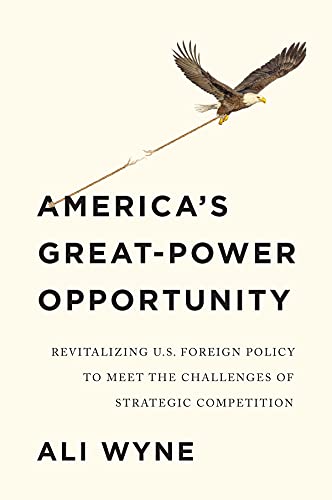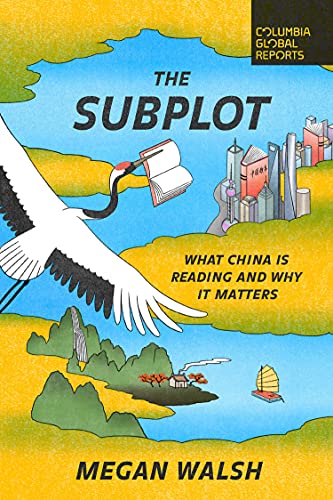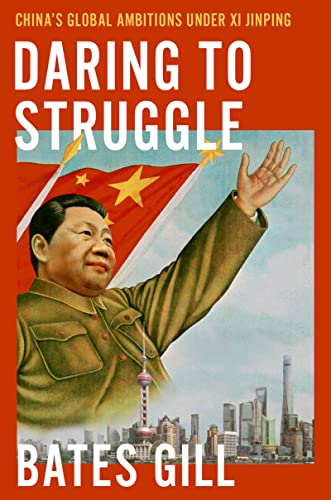Reviews of America’s Great Power Opportunity: Revitalizing U.S. Foreign Policy to Meet the Challenges of Strategic Competition by Ali Wyne. Polity, 2022; The Subplot: What China is Reading and Why It Matters by Megan Walsh. Columbia Global Reports, 2022; and Daring to Struggle: China’s Global Ambitions Under Xi Jinping by Bates Gill. Oxford, 2022.

Ali Wyne, an analyst with the Eurasia Group, questions “great power competition” as the guidepost of American foreign policy, warning that it risks lulling the United States into an “increasingly expansive, yet poorly defined struggle” that would place the country perpetually on the defensive and ignore critical transnational challenges.
China and Russia, “while significant competitors, are not overwhelming ones, either individually or in concert,” Wyne writes. While greater American self-confidence and commitment to self-renewal is merited, one wishes that Wyne detailed a circumscribed list of areas in which competition is warranted; when absolute vs. relative or selective leadership is needed; and when outperformance versus obstruction of America’s adversaries makes sense. Mastery of artificial intelligence; countering China’s efforts at territorial denial, including in the South Pacific; and winning global public opinion are varied examples of priorities that should make this list.
Questioning great power competition does not preclude the importance of preparedness or deterrence. Wyne’s assessment that “arms races figure less prominently in contemporary competition” unwisely discounts China’s intensified nuclear activity and its implications for a less stable nuclear balance of power. Separately, Wyne’s critique of great power competition and his articulation of the alternative could have given greater prominence to the role of smaller states. The former tends to reduce them to instruments of brittle blocs; the latter would create opportunities for them to be dynamic contributors to global order.
America must not only resist great power competition, it must shed itself of the pathologies of a great power. The nation that proves itself to be less lumbering, less prone to costly overreach, and less antagonistic to global progress will be the one best positioned to thrive.
* * *

“Just as the finest literature about the American Dream … almost always exposed its illusory or nightmarish reality, so Chinese fiction of the early twenty-first century reveals the myriad ways in which writers are telling a different story from the one expected or demanded of them,” Megan Walsh, a London-based journalist, writes in her survey of authors and works both renowned and obscure.
Walsh excels at contextualizing China’s fiction amid the ruptures of the country’s history and society and illuminating authors’ complex relationships with the state and commercial interests. One example is her thoughtful examination of the “boys’ love” genre, featuring tales of unrequited – lest it be censored – male-male desire popular among many of China’s young women. It is via the substitution of another man for a woman, Walsh writes, that women readers can escape social constraints on their own sexuality.
While print fiction is estimated to be outsold five to one by self-help titles in China, online platforms feature a vast corpus in which some authors push serialized offerings of thirty-thousand new words per day. Many of these game-like works, featuring protagonists ruthlessly navigating capitalist society, offer a bleak form of recognition for a readership seemingly too weary for escapism.
Throughout, Walsh has an eye for the telling quote which only compounds the wish that this text had been the commentary to a fulsome anthology.
* * *

Six thematic objectives animate China’s foreign policy, according to Bates Gill, currently on faculty at Sydney’s Macquarie University. These involve advancing China’s legitimacy, sovereignty, wealth, power, global leadership, and ideational influence. This framing is a useful complement to the hierarchy of policy priorities articulated in Kevin Rudd’s recent work, The Avoidable War, especially when illuminating how China’s policies often synergistically target multiple objectives.
Gill acknowledges that “Beijing’s objectives are not ‘secret’ or all that deceptive.” What is less scrutable is how a Leninist regime conceives its foreign policy ideologically and how it executes it operationally. Although Gill’s title aptly reflects a core ideological dynamic at work, John Garnaut better articulates that “the essence of Maoism and Stalinism is perpetual struggle… Politics is the ends.” A totalitarian regime’s foreign policy vision is merely a smokescreen for the pursuit of international deference and impunity.
Understanding how China conducts its foreign policy as a Leninist regime is no less essential to formulating an effective response. For example, until recently, foreign capitals were largely blind to methods such as united front work. Others, such as Peter Martin in China’s Civilian Army, have captured how the dynamics of China’s party-state constrains its diplomats and renders them insecure, tainted internally by their foreign exposure while party officials largely removed from the rest of the world call the shots.
If the CCP is not daring, but determined to struggle for the sake of the unity of its system, one of three outcomes are seemingly possible. In the first, the CCP stresses the global system into disorder; in the second, it rallies the rest of the world into a state of deterrence; in the third, the interests of the Party and the nation become so misaligned by the opportunity cost of foregone cooperation that the regime reembraces reform and opening.